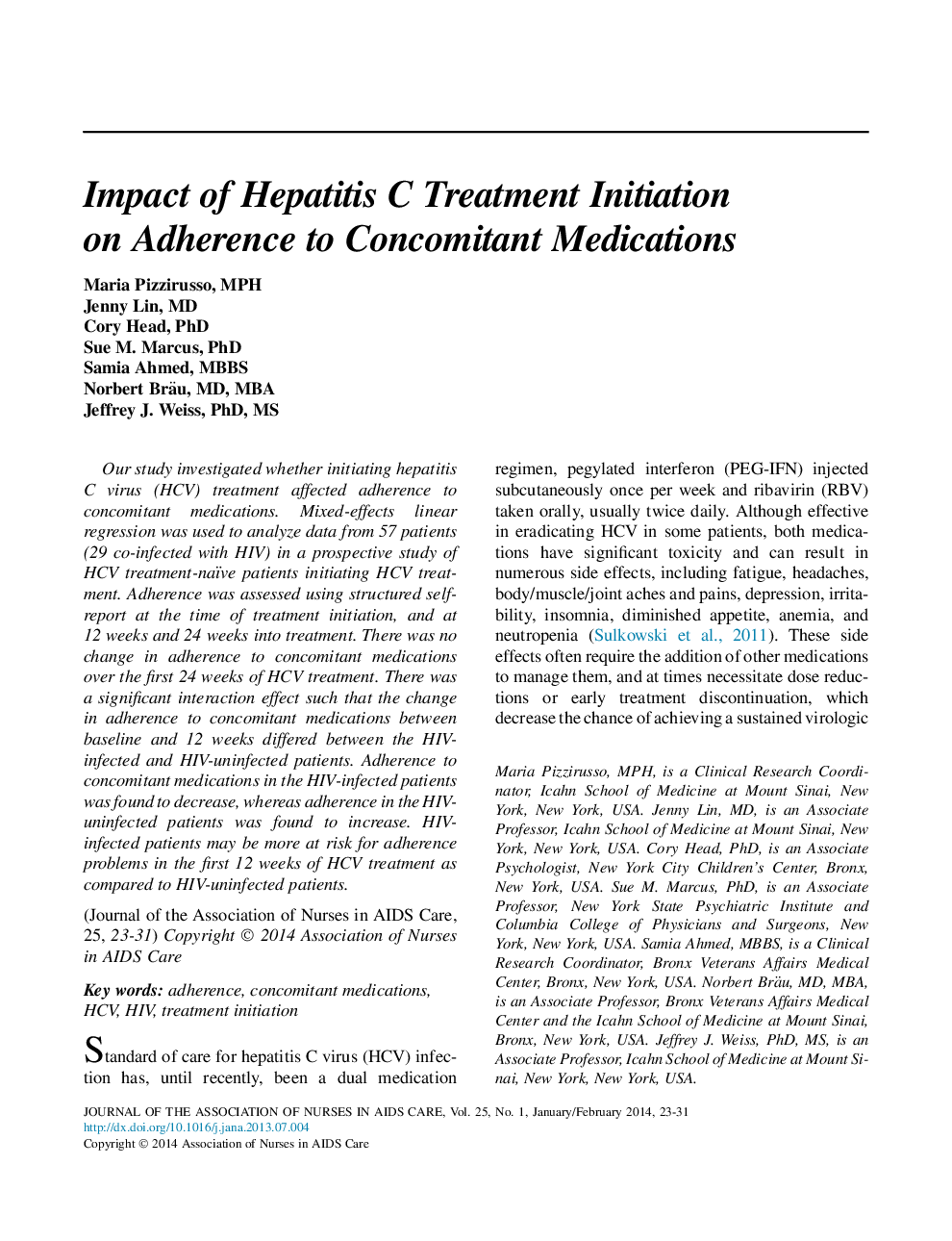| Article ID | Journal | Published Year | Pages | File Type |
|---|---|---|---|---|
| 2659047 | Journal of the Association of Nurses in AIDS Care | 2014 | 9 Pages |
Our study investigated whether initiating hepatitis C virus (HCV) treatment affected adherence to concomitant medications. Mixed-effects linear regression was used to analyze data from 57 patients (29 co-infected with HIV) in a prospective study of HCV treatment-naïve patients initiating HCV treatment. Adherence was assessed using structured self-report at the time of treatment initiation, and at 12 weeks and 24 weeks into treatment. There was no change in adherence to concomitant medications over the first 24 weeks of HCV treatment. There was a significant interaction effect such that the change in adherence to concomitant medications between baseline and 12 weeks differed between the HIV-infected and HIV-uninfected patients. Adherence to concomitant medications in the HIV-infected patients was found to decrease, whereas adherence in the HIV-uninfected patients was found to increase. HIV-infected patients may be more at risk for adherence problems in the first 12 weeks of HCV treatment as compared to HIV-uninfected patients.
